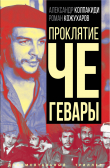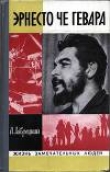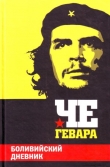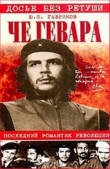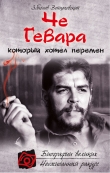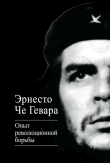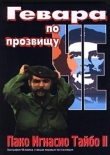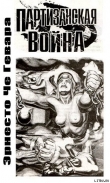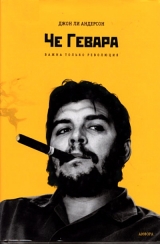
Текст книги "Че Гевара. Важна только революция"
Автор книги: Джон Ли Андерсон
Жанр:
Биографии и мемуары
сообщить о нарушении
Текущая страница: 51 (всего у книги 51 страниц)
V
Неколебимая вера Че в свои идеалы еще более подчеркивалась необычным сочетанием в нем романтического страстного сердца с холодным аналитическим умом. Эта парадоксальность его натуры, возможно, и обусловила тот почти мистический ореол, который всегда окружал Че Гевару, но она же, по-видимому, являлась и источником его слабостей – горделивости и наивности. Обладая даром стратегического видения в отдаленной перспективе, Че порой был не в состоянии решать простые задачи, из которых и складывается общий успех. Достаточно вспомнить, например, его в высшей степени неудачное решение избрать Мазетти на роль создателя партизанского лагеря в Аргентине. И там, и на Кубе, и в Конго, и в Боливии те, в кого Че Гевара верил, раз за разом подводили его, а он все бился над вопросом, как же изменить природу людей, превратить их в «самоотверженных коммунистов». Но при всех ошибках Че главное, что осталось в памяти знавших его людей, – это его вера, сила воли и самопожертвование.
Вот что говорит ветеран кубинской разведывательной службы по прозвищу Сантьяго: «Ближе к концу Че понял, что ему предстоит, и приготовился к тому, чтобы явить пример образцовой гибели. Он знал, что его смерть станет примером для многих революционеров Латинской Америки, и был прав. Конечно, мы бы предпочли, чтобы он остался жив и был здесь, с нами на Кубе, но нельзя отрицать того, что его смерть оказала нам огромную помощь. Едва ли бы мы смогли добиться такой революционной солидарности, которая была у нас все эти годы, если бы не тот героический пример, который Че явил своей гибелью».
Че и по сей день остается столь же противоречивой и всемирно признанной фигурой, какой был в конце 1960-х гг., когда восставшие студенты подняли его образ на свое знамя. Полузабытый в 1970– 1980-е гг., он вновь вернулся в массовое сознание в 1990-х гг. в качестве неувядающего символа страстного сопротивления укоренившемуся порядку.
Те, кто думал, что Че или партизанские методы ведения войны «выйдут из моды» с окончанием пропаганды марксизма и прекращением «холодной войны», ошибались. И пример тому – индейское движение сапатистов в Южной Мексике, ведомое «субкоманданте Маркосом». Не столь агрессивная военная тактика сапатистов и довольно умеренные политические цели (автономия для коренных народов мексиканского штата Чьяпас), конечно, не идут в сравнение с тактикой и целями Че, и тем не менее его влияние обнаруживается в критике повстанцами мексиканской зависимости от финансовых структур США и в их призывах к углублению социальных, политических и экономических реформ. Бесспорно харизматичный, Маркос, который умело обращается с оружием, курит трубку, отличается созерцательным, ироничным и сентиментальным характером, завоевал в народе не меньшую популярность, чем в свое время Че. Маркос действительно предстает этаким вторым Че Геварой, только более приспособленным к современным условиям: идеализм, хотя и не столь утопический, сочетается в нем с готовностью сражаться за свои убеждения; многое в его образе кажется позаимствованным у знаменитого предшественника.
Во многих конфликтах, чьи истоки уходят корнями в прошлое, продолжает незримо ощущаться присутствие Че. Так, в декабре 1996 г. «геваристская» партизанская группировка «Революционное движение имени Тупака Амару» захватила японское посольство в столице Перу Лиме, что привлекло внимание всего мира к прежде малоизвестным проблемам этой страны и пошатнуло позиции местного режима. А всего несколько недель спустя в Африке возник конфликт, вызванный тем, что несколько миллионов представителей народности хуту бежали из Руанды в Восточный Заир; среди них скрывались и вооруженные ополченцы, присутствие которых спровоцировало весьма эффектное выступление ранее неприметного заирского повстанческого движения: его бойцы изгнали беженцев назад в Руанду, захватили заирские города и начали преследование ополченцев хуту.
Вскоре стало известно имя лидера этого движения. Это был не кто иной, как Лоран Кабила – человек, которому Че пытался помогать в Конго тремя десятилетиями ранее; Кабила возник из политического небытия, чтобы снова поднять знамя борьбы.
В мае 1997 г. в результате ошеломляюще быстрой военной кампании Кабила свергнул диктатора Мобуту, правившего страной тридцать один год, взял власть в свои руки и переименовал Заир в Демократическую республику Конго. Осознал ли Кабила свои былые ошибки, помнит ли он, как в свое время наплевательски отнесся к попыткам Че Гевары помочь ему «освободить» Конго, остается неизвестным, но само по себе возвращение Кабилы на сцену истории в очередной раз напомнило о том, что исход некоторых битв, начатых Че в шестидесятые годы, может быть, до сих пор еще не решен.
Попытки найти и эксгумировать тело Че, предпринимавшиеся в окрестностях боливийского городка Вальегранде, наконец принесли успех. В июле 1997 г. специальная кубинско-аргентинская экспедиция откопала его скелет (у которого недоставало кистей рук), вместе со скелетами еще шестерых партизан. После эксгумации останки были помещены в гробы и привезены на Кубу, где состоялась скромная, но волнующая церемония, на которой присутствовали Фидель и Рауль Кастро, а также вдова Че с детьми. В октябре 1997 г. тело Эрнесто Че Гевары было публично перезахоронено в специально построенном мавзолее на окраине города Санта-Клары. Спустя тридцать лет Че Гевара окончательно вернулся на свою вторую родину.
А в Вальегранде на глинобитной стене телефонной станции красуется ныне граффито с надписью на испанском, гласящей: «Че, ты живей, чем они хотели». Быть может, эта надпись лучше любой другой говорит о значимости Че в современном мире. Каким-то образом Эрнесто Че Гевара сумел сохранить свое влияние на сердца людей – влияние, которому, похоже, нет преград во времени и пространстве. Навеки оставшись молодым, отважным, непримиримым и непокорным, Че победил саму смерть. Даже ближайшие его друзья и соратники увядают с каждым годом, уступая соблазнам тихой жизни, в которой нет более места революции, а образ Че остается неизменным. Он бессмертен, поскольку таким его видят другие – Новым Человеком, призывавшим остальных следовать его примеру.
Избранная библиография
ТРУДЫ ЭРНЕСТО ЧЕ ГЕВАРЫ И РАБОТЫ О НЕМ
Adams J. R. Latin American Heroes. New York: Ballantine Books, 1991. Alexandre M. (ed.). Viva Che. London: Lorrimer, Third World Series, 1968.
Alvarez Batista G. Che: Una Nueva Batalla. La Habana: Pablo de la Torriente, 1994.
Anderson J. L. Bones Now Seem to Prove That Che Is Dead // The New York Times (July 5, 1997).
Anderson J. L. Where Is Che Guevara Buried? A Bolivian Tells // The New York Times, November 21,1995.
Ariet del Carmen M. Che: Pensamiento Pol #237;tico. La Habana: Editora Pol #237;tica, 1993
Ariet del Carmen M. El Pensamiento del Che. La Habana: Editorial Capit #225;n San Luis, 1992.
Bourne R. Political headers of Latin America. London: Pelican Books, 1969.
Bruschtein L. Che Guevara: Los Hombres de la Historia. (Magazine supplement.) Buenos Aires: Pagina 12, Centro Editor de America Latina, 1994.
Cand #237;a A. G. La Muerte del Che Guevara. La Paz, Bolivia: La Liga Anticomunista de los Pueblos Asiaticos, Republica de China, 1971.
Castro F. Che: A Memoir by Fidel Castro. Melbourne, Australia: Ocean Press, 1994.
Centro de Estudios Sobre America. Pensar al Che, Tomo I and 2. La Habana: Editorial Jos #233; Mart #237;, 1989.
Che. La Habana: Casa de Las Americas, № 43 (Jan.-Feb. 1968).
Che: Edici #243;n Especial de Moncada. La Habana: Ministerio del Interior, October 6,1987.
Cupull A., Gonz #225;lez F. C #225;lida Presencia: Su Amistad con Tita Infante. Santiago de Cuba: Editorial Oriente, 1995.
Cupull A., Gonz #225;lez F. De #209;ancahuasu a La Higuera. La Habana: Editora Pol #237;tica 1989.
Cupull A., Gonz #225;lez F. El Diario del Che en Bolivia. La Habana: Editora Pol #237;tica, 1988.
Cupull A., Gonz #225;lez F. Entre Nosotros. La Habana: Ediciones Abril, 1992.
Cupull A., Gonz #225;lez F. Ernestito: Vivo y Presente. La Habana: Editora Pol #237;tica, 1989.
Cupull A., Gonz #225;lez F. La CIA contra El Che. La Habana: Editora Pol #237;tica, 1992.
Cupull A., Gonz #225;lez F. Un Hombre Bravo. La Habana: Editorial Capit #225;n San Luis, 1995.
Debray R. La Guerrilla de Che. Barcelona: Siglo Veinti #250;n Editores, 1975.
Escobar F., Guerra F. Che: Sierra Adentro. La Habana: Editora Pol #237;tica, 1988.
Espinosa Goitizolo R., Guardarrama G. G. Atlas Ernesto Che Guevara: Hist #243;rico Biogr #225;fico y Militar La Habana: Editorial Pueblo y Educaci #243;n, Ministerio de las Fuerzas Armadas Revolucionarias, 1991.
Gadea H. Ernesto: A Memoir of Che Guevara: An Int #237;mate Account of the Making of a Revolutionary by His First Wife, Hilda Gadea. London and New York: W. H. Alien, 1973.
Galvarro C. S. El Che en Bolivia: Documentos y Testimonios, vols. 1–5. La Paz, Bolivia: CEDOIN Colecci #243;n Historia y Documento, 1994–1996.
Gambini H. El Che Guevara: La Biograf #237;a. Buenos Aires: Grupo Planeta, 1968, rev. ed., 1996
Garc #233;s M. Materiales sobre la Guerrilla de #209;ancahuasu: La Campa #241;a del Che en Bolivia (1967) Atrav #233;z della Prensa. Quito, Ecuador: Editorial La Ma #241;ana, 1987.
Garc #237;a Carranza A., Garc #237;a Carranza J. (eds.). Bibliograf #237;a Cubana del Comandante Ernesto Che Guevara. La Habana: Ministerio de Cultura Biblioteca Nacional Jos #233; Mart #237;. Dept. de Investigaciones Bibliogr #225;ficas, 1987.
Gonz #225;lez L. J., S #225;nchez Salaz #225;r G. A. The Great Rebel: Che Guevara in Bolivia. New York: Grove Press, 1969.
Granado A. Con el Che Guevara de C #243;rdoba a la Habana. C #243;rdoba, Argentina: Opoloop Ediciones, 1995.
Granado A. Con el Che por Sudamerica. La Habana: Editorial Letras Cubanas, 1980.
Granma: Edici #243;n Especial. «Dolorosamente Cierta La Muerte del Comandante Ernesto Guevara». La Habana: Comit #233; Central del Partido Comunista de Cuba, October 17,1967.
Guevara E. Che. Bolivian Diary / Trans. Carlos P. Hansen and Andrew Sinclair. London: Jonathan Cape / Lorrimer, 1968.
Guevara E. Che. Bolivian Diary. New York: Pathfinder, 1994.
Guevara E. Che. Che Guevara and the Cuban Revolution: Writings and Speeches of Ernesto Che Guevara. New York: Pathfinder/Pacific amp; Asia, 1987
Guevara E. Che. Che Guevara Speaks. La Habana: Pathfinder / Jos #233; Mart #237; 1988.
Guevara E. Che. Che Periodista. La Habana: Editorial Pablo de la Torriente, Uni #243;n de Periodistas de Cuba, 1988.
Guevara E. Che. Che: Reminiscences of the Cuban Revolutionary War / Trans. Victoria Ortiz. / New York: Monthly Review Press, Inc., 1968.
Guevara E. Che. Che: Selected Works of Ernesto Guevara / Ed. Bonachea and Valdes. MIT Press, 1969.
Guevara E. Che. Diario del Che en Bolivia. Buenos Aires: Editorial Lagasa, 1994.
Guevara E. Che. El Che Guevara en la Revoluci #243;n Cubana / Ra #250;l Castro. La Habana: Ministerio de Az #250;car, 1969.
Guevara E. Che. Ernesto Che Guevara (Obras). La Habana: Editorial de Ciencias Sociales del Instituto Cubano del Libro, 1972.
Guevara E. Che. Ernesto Che Guevara: Obras 1957–1967. La Habana: Casa de las Americas, 1970.
Guevara E. Che. Ernesto «Che» Guevara: Scritti scelti, vols. 1 and 2 / Ed. Roberto Massari. Rome: erre emme, 1993.
Guevara E. Che. Ernesto Che Guevara: Temas Econ #243;micos. La Habana: Editorial de Ciencias Sociales, 1988.
Guevara E. Che. Episodes of the Cuban Revolutionary War. New York: Pathfinder, 1996.
Guevara E. Che. Guerrilla Warfare. Lincoln and London: University of Nebraska Press, 1985.
Guevara E. Che. Ideario Pol #237;tico y Filos #243;fico del Che. La Habana: Editora Pol #237;tica / Olivo Colecci #243;n, 1991.
Guevara E. Che. La Guerra de Guerrillas. La Habana: Talleres de INRA, 1961.
Guevara E. Che. The Motorcycle Diaries / Trans #237;. Ann Wright. London: Verso, 1994.
Guevara E. Che. A New Society: Reflections for Today's World. Melbourne, Australia: Ocean Press, 1991.
Guevara E. Che. Notas de Viaje. La Habana: Editorial Abril, 1992.
Guevara E. Che. Pasajes de la Guerra Revolucionaria. La Habana: Ediciones Uni #243;n / Narraciones, UNEAC, 1963.
Guevara E. Che. Venceremos: The Speeches and Writings of Che Guevara / Ed. John Gerassi. London: Panther Modem Society, 1969, 1972.
Guevara E. Che, Castro R. Diarios In #233;ditos de la Guerrilla Cubana / Ed. Heinz Dieterich and Paco Ignacio Taibo EL Mexico: Editorial Joaqu #237;n Mort #237;z. Grupo Editorial Planeta, 1995.
Guevara L. E. Aqu #237; Va un Soldado de las Americas. Sudamericana Planeta, 1987.
Guevara L. E. M #237; Hijo el Che. La Habana: Editorial Arte, 1988.
Harris R. L. Death of a Revolutionary: Che Guevara's Last Mission. W. W. Norton amp; Co., Inc., 1970.
Hodges D. C. The Legacy of Che Guevara: A Documentary Study. London: Thames amp; Hudson, 1977.
James D. Che Guevara: A Biography. New York: Stein and Day, 1969. James D. The Complete Bolivian Diaries of the Che Guevara and Other Captured Documents. New York: Stein and Day Publishers, 1968.
Korol C. El Che y los Argentinos. Buenos Aires: Ediciones Dial #233;ctica, Colecci #243;n Testimonial, 1988.
Larteguy J. Los Guerrilleros. Mexico: Editorial Diana, Mexico, 1979. Lavretsky I. Ernesto Che Guevara. Moscow: Progress Publishers, 1977. Maestre A. J. Ernesto Che Guevara: Antolog #237;a del Pensamiento Politico, Social y Econ #243;mico de America Latina. Madrid: Ediciones de Cultura Hisp #225;nica, 1988.
Mart #237;nez Est #233;vez D. #209;ancahuasu: Apuntes para la Historia Militar de Bolivia. La Paz, Bolivia: Transcripci #243;n e Impresi #243;n Laser «Computaci #243;n y Proyectos», 1989.
Mart #237;nez Heredia F. Che, el Socialismo y el Comunismo. La Habana: Ediciones Casa de las Americas, 1989.
Massari R., Mart #237;nez F., et al. Che Guevara: Grandeza y Riesgo de la Utopia. City TK: Txalaparta, 1993.
Massari R., Mart #237;nez F., et al. Che Guevara: pensiero e politica dell'utopia. Roma: erre emme, 1993.
Massari R., Mart #237;nez F., et al. Guevara para Hoy. La Habana: Centro de Estudios Sobre America / La Universidad de Camilo Cienfuegos, Matanzas / erre emme edizioni, 1994.
Massari R., Mart #237;nez F., et al. Otros Documentos del Che en Bolivia. La Paz, Bolivia: Ediciones Katari (undated).
Moyano Martin D. The Making of a Revolutionary: A Memoir of Young Guevara // The New York Times Magazine (August 18, 1968).
Peredo I. Mi Campa #241;a con el Che. Mexico: Editorial Diogenes S. A.
P #233;rez G. V. Un Hombre Que Actua Como Piensa. La Habana: Editora Pol #237;tica, 1988.
Prado Salmon G. La Guerrilla Inmolada: Testimonio y An #225;lisis de un Protagonista. Santa Cruz, Bolivia: Co-Edici #243;n Grupo Editorial Punto y Coma, 1987.
Ray M. In Cold Blood: How the CIA Executed Che Guevara // Ramparts. February 5, 1968.
Rodr #237;guez Herrera M. Con la Adarga al Brazo. La Habana: Lectura para J #243;venes, Editorial Pol #237;tica, 1988.
Rodr #237;guez Herrera M. Ellos Lucharon con el Che. La Habana: Ediciones Pol #237;ticas, Editorial de Ciencias Sociales, 1989.
Rojas M. Testimonios sobre el Che, Autores Varios. La Habana: Colecci #243;n Pablo de la Torriente, 1990.
Rojo R. My Friend Che. New York: Grove Press, 1969.
Saucedo Parada A. No Disparen Soy El Che. Santa Cruz, Bolivia: Talleres Gr #225;ficos de Editorial Oriente, 1988.
Sinclair A. Guevara. London: Fontana/Collins, 1970.
Soria Galvarro C. Tras Las Huellas del Che en Bolivia // La Raz #243;n (October 9, 1996).
The Spirit of Che // Evergreen Review, № 51 (February 1968).
Tablada C., Barnes J., Clark S., Waters M.-A. Che Guevara: Cuba and the Road to Socialism (Che Guevara, Carlos Rafael Rodr #237;guez). New York: New International, 1991.
Tablada P #233;rez C. El Pensamiento Econ #243;mico de Ernesto Che Guevara. La Habana: Ediciones Casa de las Am #233;ricas, 1987.
Taibo P. I. II. Ernesto Guevara: Tambi #233;n Conocido Como El Che. Mexico: Editorial Joaqu #237;n Mort #237;z, Grupo Editorial Planeta, 1996.
Ter #225;n R. La Campa #241;a de #209;ancahuasu: La Guerrilla del «Che» Visto por el Comandante de la IV Divisi #243;n del Ejercito Boliviano. La Paz, Bolivia: 1987.
Vargas Salinas M. El Che: Mito y Realidad. La Paz / Cochabamba: Los Amigos del Libro, 1988.
Vasquez-Via #241;a H. Antecedentes de la Guerrilla del Che en Bolivia. Research Paper Series, № 46. Stockholm: Institute of Latin American Studies, September 1987.
Vasquez-Via #241;a H., Aliaga Saravia R. Bolivia: Ensayo de Revoluci #243;n Continental. Bolivia.[52]52
Издано частным образом, выходные данные отсутствуют.
[Закрыть]
Villegas H. (Pombo). Un Hombre de la Guerrilla del Che. Buenos Aires and La Habana: Ediciones Colih #252;e. Editora Pol #237;tica, 1996.
РАБОТЫ О КУБЕ, ФИДЕЛЕ КАСТРО И ЧЕ
Acevedo Е. Descamisado. La Habana: Editorial Cultura Popular, International Network Group, 1993.
Almeida Bosque J. Atenci #243;n, Recuento! La Habana: Editora Pol #237;tica, 1988.
Almeida Bosque J. La Siena. La Habana: Editora Pol #237;tica, 1989.
Almeida Bosque J. La Sierra Maestra y Mas All #225;. La Habana: Editora Pol #237;tica, 1995.
Almeida Bosque J. Por las Faldas del Turquino. La Habana: Editora Pol #237;tica, 1992.
Arenas R. Before Night Falls: A Memoir. New York: Viking Penguin, 1993.
Beschloss M. R. The Crisis Years: Kennedy and Khrushchev, 1960–1963. New York: HarperCollins, 1991.
Borge T. Fidel Castro: Un Grano de Ma #237;z. Conversaci #243;n con Tomas Borge. La Habana: Oficina de Publicaciones del Consejo de Estado, 1992.
Blight J. G., Allyn B. J., Welch D. A. Cuba on the Brink. New York: Pantheon. 1993.
Brugioni D. A. Eyeball to Eyeball: The Inside Story of the Cuban Missile Crisis. New York: Random House, 1991.
Cabrera Infante G. Mea Cuba. New York: Farrar, Straus amp; Giroux, 1994.
Cabrera Infante G. Vista del Amanecer en el Tr #243;pico. Barcelona: Seix Barral, 1974.
Castro F. La Historia Me Absolver #225;. La Habana: Oficina de Publicaciones del Consejo de Estado, 1993.
Castro F., Che Guevara. To Speak the Truth. New York: Pathfinder, 1992.
Chang L., Kornbluh P. (eds.). The Cuban Missile Crisis 1962. New York: New Press, 1992.
Chaviano J. O. La Lucha en las Villas. La Habana: Editorial de Ciencias Sociales, 1990.
Cuervo Cerulia G. (ed.). Granma – Rumbo a la Libertad. La Habana: Editorial Gente Nueva, 1983.
Darushenkov O. Cuba, El Camino de la Revoluci #243;n. Moscow: Editorial Progreso, 1979.
Debray R. Prison Writings. London: Pelican Latin America Library, Penguin Books, 1973.
Debray R. Revolution in the Revolution? London: Pelican Latin America Library, Penguin Books, 1968.
Debray R. Strategy for Revolution. London: Pelican Latin America Library, Penguin Books, 1973.
Draper T. Castroism: Theory and Practice. New York: Frederick Praeger, 1965.
Dumont R. Cuba: Socialism and Development. New York: Grove Press, 1970.
Ediciones Pol #237;ticas. Cinco Documentos. La Habana: Editorial de Ciencias Sociales, Institute Cubano del Libro, 1971.
Edwards J. Persona Non Grata: An Envoy in Castro's Cuba. London: The Bodley Head, 1977.
Franqui C. Diary of the Cuban Revolution. New York: A Seaver Book, Viking Press, 1980.
Franqui C. Family Portrait with Fidel. New York: Vintage, 1985.
Franqui C. The Twelve. New York: Lyle Stuart, Inc., 1968.
Galeano E. El Tigre Azul y Otros Relatos. La Habana: Editorial de Ciencias Sociales, Editora Pol #237;tica, 1991.
Geyer G. A. Prince: The Untold Story of Fidel Castro. New York: Little, Brown amp; Со, 1991.
Gosse Van. Where the Boys Are: Cuba, Cold War America and the Making of a New Left. London and New York: Verso, 1993.
Habel J. Cuba: The Revolution in Peril. London: Verso, 1991.
Halperin M. The Taming of Fidel Castro. Berkeley: University of California Press, 1979.
Hinckle W., Turner W. The Fish Is Red: The Story of the Secret War against Castro. New York: Harper amp; Row, 1981.
Iglesias J. De la Siena Maestra al Escambray. La Habana: Letras Cubanas, 1979.
Jenks L. H. Nuestra Colonia de Cuba. La Habana: La Empresa Consolidada de Artes Gr #225;ficas, 1928.
Karol K. S. Guerrillas in Power. New York: Hill amp; Wang, 1970.
Kennedy R. F. Thirteen Days: A Memoir of the Cuban Missile Crisis. New York: A Mentor Book, Penguin, 1969.
Lara J. Guerrillero Inti Peredo. Cochabamba, Bolivia: Edici #243;n del Autor, 1980.
Lazo M. Dagger in the Heart: American Policy Failures in Cuba. New York: Funk and Wagnall, 1968.
Llovio-Men #233;ndez J. L. Insider: My Life as a Hidden Revolutionary in Cuba. New York: Bantam, 1988.
Lockwood L. Castro's Cuba, Cuba's Fidel. New York: Westview Press, 1990. Mallin J. Covering Castro: The Rise and Decline of Cuba's Communist Dictator. New Brunswick, New Jersey: U.S.-Cuba Institute, Transaction Publishers, 1994.
Martin L. The Early Fidel: Roots of Castro's Communism. New York: Lyle Stuart, Inc., 1977.
Mart #237;nez V #237;ctores R. RR: La Historia de Radio Rebelde. La Habana: Editorial de Ciencias Sociales, 1978.
Masetti J. R. Los Que Luchan y Los Que Lloran. Buenos Aires: Puntosur, 1987.
Matthews H. L. The Cuban Story. New York: George Braziller, 1961. Matthews H. L. Castro: A Political Biography. London: Pelican Books, 1970.
Min #226; G. An Encounter with Fidel. Australia: Ocean Press, 1991.
Nu #241;ez Jim #233;nez A. En Marcha con Fidel. La Habana: Editoria Cubanas, 1982.
Nu #241;ez Jim #233;nez A. Patria o Muerte. La Habana: INRA, 1961.
Padilla H. Self-Portrait of the Other: A Memoir. New York: Far Straus amp; Giroux, 1990.
Perez L. A. Cuba: Between Reform and Revolution. New York: Oxford University Press, 1988.
Quirk R. E. Fidel Castro. New York: Norton, 1993.
Robbins C. A. The Cuban Threat. New York: ISCHI Publications, 1985. Rojas M., Rodr #237;guez M. Tania la Guerrillera Inolvidable. La Habana: Instituto del Libro, 1970.
Rodr #237;guez F. I., Weisman J. Shadow Warrior: The CIA Hero of a Hundred Unknown Battles. New York: Simon amp; Schuster, 1989.
Rueda M., Antezana Ergueta L. Una Leyenda llamada Tania // La Raz #243;n «Ventana», October 15,1995.
Salkey A. Havana Journal. London: Penguin Books, 1971.
Sarabia N. M #233;dicos de la Revoluci #243;n. Apuntes Biogr #225;ficos. La Habana: Editorial Gente Nueva, 1983.
Stubbs J. Cuba: The Test of Time. London: Latin America Books, 1989. Szulc T. Fidel: A Critical Portrait. New York: William Morrow Co., 1986. Taber R. M-26: The Biography of a Revolution. New York: Lyle Stuart, 1961.
Thomas H. Cuba or The Pursuit of Freedom. London: Eyre amp; Spottiswoode, 1971.
Timmerman J. Cuba. New York: Vintage Books, 1992.
Welch R. E., Jr. Response to Revolution: The United States and the Cuban Revolution, 1959–1961. Chapel Hill: The University of North Carolina Press, 1985.
Wyden P. Bay of Pigs. New York: Simon amp; Schuster, 1979.
РАБОТЫ ОБ АРГЕНТИНЕ
Barnes J. Evita: First Lady – A Biography of Evita Per #243;n. New York: Grove Press, 1978.
Baschetti R. (ed.). Documentos 1970–1973: De la Guerrilla Peronista al Gobierno Popular. Buenos Aires: Editorial de la Campana, Colecci #243;n Campana de Palo, 1995.
Crasweller R. Per #243;n and the Enigmas of Argentina. New York: W. W. Norton, 1987.
Gilbert I. El Oro de Mosc #250;: La Historia Secreta de las Relaciones Argentino– Sovi #233;ticos. Buenos Aires: Planeta / Espejo de la Argentina, 1994.
Luna F. La Argentina: De Per #243;n a Lanusse, 1943–1973. Buenos Aires: Planeta, Espejo de la Argentina, 1993.
Main M. Evita: The Woman with the Whip. London: Corgi Books, 1977, 1978.
Rock D. Authoritarian Argentina: The Nationalist Movement, Its History and Its Impact. Berkeley: University of California Press, 1993.
Scobie J. R. Argentina: A City and a Nation. New York: Oxford University Press, 1971.
Tulchin J. S. Argentina and the United States: A Conflicted Relationship. New York: Macmillan, 1990.
РАБОТЫ О ЛАТИНСКОЙ АМЕРИКЕ
Aguilar L. E. (ed.). Marxism in Latin America: A Borzoi Book on Latin America. New York: Alfred A. Knopf, 1968.
Borge T. The Patient Impatience. New York: Curbstone, 1992.
Brown M. F., Fernandez E. War of Shadows: The Struggle for Utopia in the Peruvian Amazon. Berkeley: University of California Press, 1991.
Caj #237;as L., de. Juan Lech #237;n, Historia de una Leyenda. La Paz, Bolivia: Los Amigos del Libro, 1994.
Casta #241;eda J. G. Utopia Unarmed: The Latin American Left After the Cold War. New York: Alfred A. Knopf, 1994.
Dunkerley J. Rebellion in the Veins: Political Struggle in Bolivia 1952–1982. London: Verso Editions, 1984.
Gerassi J. The Great Fear in Latin America. New York: Collier, 1963.
Gott R. Guerrilla Movements in Latin America. London: Thomas Nelson and Sons Ltd., 1970.
Gott R. Land without Evil: Utopian Journeys across the South American Watershed. London: Verso, 1993.
Gunson Ph., Chamberlain G., Thompson A. The Dictionary of Contemporary Politics of Central America and the Caribbean. New York: Simon amp; Schuster, 1991.
Herrera H. Frida: A Biography of Frida Kahlo. New York: HarperCollins, 1984.
Lindqvvist S. The Shadow: Latin America Faces the Seventies. London: Pelican Latin America Library, Penguin Books, 1969.
Min #225; G. Un Continente Desaparecido. Barcelona: Ediciones Pen #237;nsula, 1996.
Pendle G. History of Latin America. London: Penguin, 1963, 1990.
Schlesinger S., Kinzer S. Bitter Fruit: The Untold Story of the American Coup in Guatemala. New York: Anchor Press / Doubleday, 1983.
Szulc T. Twilight of the Tyrants. New York: Henry Holt amp; Co., 1959.
Ydigoras Fuentes M. My War with Communism. New York: Prentic Hall, Inc., 1963.
РАБОТЫ О КУБИНСКО-АФРИКАНСКИХ ОТНОШЕНИЯХ
Barreto J. Comrade Tato // Prensa Latina (June 1993).
Bridgland F. Jonas Savimbi: A Key to Africa. New York: Paragon House Publishers, 1987.
Carrasco J. Tatu: Un Guerrillero Africano // Verde Olivo (June 1988).
Gott R. Che's Missing Year: Che Guevara and the Congo // New Left Review № 220 (1996).
Garc #237;a M #225;rquez G., Risqu #233;t J., Castro F. Changing the History of Africa, Angola and Namibia. Australia: Ocean Press, 1989.
Heikal М. H. The Cairo Documents. New York: Doubleday, 1971.
Jim #233;nez Rodr #237;guez L. Hero #237;nas de Angola. La Habana: Editorial de Ciencias Sociales, 1985.
Moore J. C. Castro, the Blacks and Africa. Berkeley: Center for Afro– American Studies, University of California Press, 1988.
Taibo P. I. П, Escobar F., Guerra F. El A #241;o Que Estuvimos en Ninguna Parte. Mexico: Editorial Joaqu #237;n Mort #237;z, Grupo Planeta, 1994.
РАБОТЫ О «ХОЛОДНОЙ ВОЙНЕ»
Andrew Ch., Gordievsky 0. KGB: The Inside Story. London: HarperCollins, 1990.
Frankland M. Khrushchev. Lanham, Maryland: Madison Books, UPA, 1969.
Goodwin R. Remembering America: A Voice from the Sixties. Boston: Little Brown amp; Co., 1988.
Grose P. Gentleman Spy: The Life of Allen Dulles. New York: Houghton Mifflin, 1994.
Kwitny J. Endless Enemies: The Maying of an Unfriendly World. New York: Viking Penguin, 1986.
Schlesinger A., Jr. A Thousand Days: John F. Kennedy in the White House. New York: Houghton Mifflin, 1965.
Steele J. World Power: Soviet Foreign Policy under Brezhnev and Andropov. London: Michael Joseph, 1983.
Ranelagh J. The Agency: The Rise and Decline of the CIA. London: Weidenfeld amp; Nicolson, 1986.
Thomas E. The Very Best Men: Four Who Dared – The Early Years of the CIA. New York: Touchstone, Simon amp; Schuster, 1995.
Zubok V., Pleshakov C. Inside the Kremlin's Cold War: From Stalin to Khrushchev. Cambridge, Mass.: Harvard University Press, 1996.
РАЗНОЕ
Allaine M.-F. Conversations with Graham Greene. London: Penguin, 1991.
Anderson B. Imagined Communites. London: Verso, 1991. (Первое изд.: 1983).
Armi #241;o M. (ed.). Lucha de Guerrillas: Seg #250;n los Cl #225;sicos de Marxismo– Leninismo. Madrid: Biblioteca Jucar: 1980.
Bottomore T. (ed.). A Dictionary of Marxist Thought. Oxford: Blackwell's, 1991.
Cantor J. The Death of Che Guevara. (Fiction.) New York: Alfred A. Knopf, 1983.
De Beauvoir S. All Said and Done. London: Penguin Books, 1977.
De Beauvoir S. The Force of Circumstance. London: Penguin Books, 1968.
Debray R. Loues Soient Nos Seigneurs: Une Education Politique. Paris: Gallimard, 1996.
Desmond A., Moore J. Darwin. New York: Warner Books, 1992.
Fanon F. The Wretched of the Earth. New York: Grove Press, 1982.
Greene G. Fragments of Autobiography. London: Penguin, 1991.
Greene G. Our Man in Havana. London: Heinemann, 1958.
Harris N. National Liberation. London: Penguin, 1990.
Malcolm X. Malcolm X Speaks / Ed. George Breitman. New York: Grove Weidenfeld, 1990.
Nehru J. The Discovery of India. Oxford University Press, 1985.
Neruda P. Five Decades: A Selection (Poems 1925–1970) / Ed. and trans. Ben Bellit. New York: Grove Press, 1974.
Payne R. The Life and Death of Lenin. New York: Simon amp; Schuster, 1964.
Salisbury H. The New Emperors: China in the Era of Mao and Deng. New York: Avon Books, 1992.
Schama S. Citizens: A Chronicle of the French Revolution. London: Penguin, 1989.
Snow E. Red Star over China. New York: Grove Weidenfeld, 1973. Westoby A. The Evolution of Communism. New York: The Free Press, Macmillan, Inc., 1989
